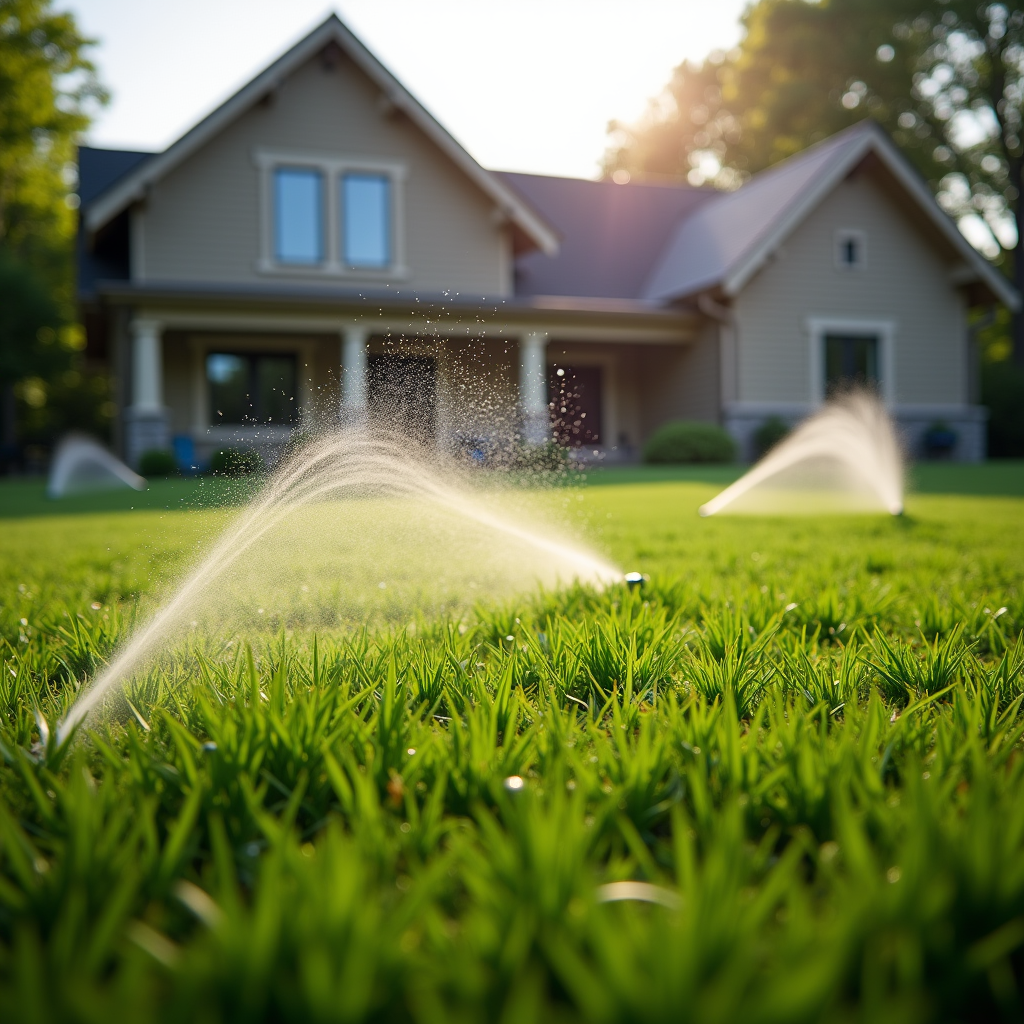Introduction
If you’re tired of dealing with chemical-laden lawn care products that seem to do more harm than good, you’ve landed in the right spot. In today’s world, where sustainability and environmental consciousness are on everyone’s lips, choosing organic lawn care products can be a game-changer for your green space. Choosing Organic Lawn Care Products: A Comprehensive Guide will walk you through everything you need to know about transforming your lawn into a healthy haven without relying on harmful chemicals.

Organic lawn care isn’t just a trend; it’s a lifestyle choice that promotes biodiversity, protects ecosystems, and is better for your health. So, let’s dive deep into the realm of organic lawn care and discover how you can make informed choices for your garden!
Understanding Organic Lawn Care
What Is Organic Lawn Care?
Organic lawn care focuses on natural methods and materials to maintain a healthy lawn. Instead of synthetic fertilizers and pesticides, organic practices utilize composts, natural fertilizers, and biological pest control methods. This not only helps in achieving a lush lawn but also nurtures the soil ecosystem.
Benefits of Organic Lawn Care
- Environmental Safety: Reduces chemical runoff into waterways. Healthier Soil: Enhances soil structure and microbial activity. Biodiversity Promotion: Supports beneficial insects like bees and butterflies. Sustainable Practices: Contributes to long-term ecological balance.
How Does Organic Lawn Care Differ from Traditional Methods?
Traditional lawn care often relies heavily on quick fixes like synthetic fertilizers that can lead to nutrient imbalances over time. In contrast, organic methods focus on building soil health gradually through natural amendments.
https://penzu.com/p/2677290c6b993085Components of Organic Lawn Care
Natural Fertilizers
Types of Natural Fertilizers
Compost: Decomposed organic matter rich in nutrients. Manure: Animal waste that provides nitrogen. Bone Meal: A source of phosphorus beneficial for root growth. Fish Emulsion: A quick-release fertilizer high in nitrogen.How to Use Natural Fertilizers Effectively
To maximize the benefits of these products:
- Apply during the growing season. Follow recommended application rates based on soil tests.
Pest Control Solutions
Common Organic Pest Control Methods
Neem Oil: An effective agent against various pests. Diatomaceous Earth: Useful for controlling soft-bodied insects. Beneficial Insects: Introduce ladybugs or lacewings to manage aphid populations.When to Use Pest Control Solutions
Monitor your lawn regularly for signs of infestations and apply treatments as necessary rather than doing so preemptively.
Choosing Organic Lawn Care Products
Identifying Reliable Brands
When selecting organic products, look for certifications from reputable organizations like OMRI (Organic Materials Review Institute).
Reading Labels Wisely
Pay attention to ingredient lists; terms like “natural” don’t always guarantee safety or effectiveness.

Popular Organic Lawn Care Products to Consider
Here’s a handy table summarizing some top-rated organic products:
| Product Type | Example Brand | Key Ingredients | |--------------------|------------------|----------------------------| | Fertilizer | Espoma Organic | Bone meal, blood meal | | Pest Control | Garden Safe | Neem oil | | Weed Control | Corn Gluten Meal | Natural herbicide |
Implementing an Organic Lawn Care Routine
Seasonal Tips for Your Lawn
Spring Preparation
- Test your soil pH before planting anything new. Apply compost as needed.
Summer Maintenance
- Water deeply but infrequently; this encourages deeper root growth.
Fall Cleanup
- Aerate your lawn to improve air circulation in the soil.
Tools You’ll Need
Rake Compost bin Spreader for fertilizer Sprayer for liquid pest control solutionsCommon Myths About Organic Lawn Care
Myth 1: It Takes Longer to See Results
While it may take longer initially, the long-term benefits far outweigh the wait time.
Myth 2: It's More Expensive Than Traditional Methods
In reality, many organic solutions can be made at home at little cost!
FAQs About Choosing Organic Lawn Care Products
Q1: Are organic lawn care products safe for pets?
Absolutely! Most organic products are safe around pets when used as directed.
Q2: Can I use chemical fertilizers alongside organic ones?
It’s best not to mix them as this can lead to unpredictable results in your soil health.
Q3: Do organic methods really work?
Yes! Many gardeners report healthier lawns when using organic practices consistently over time.

Q4: How do I know if my lawn needs nutrients?
Conduct a soil test every couple of years to determine nutrient levels and pH balance.
Q5: How often should I fertilize my lawn organically?
Typically, once every 4–6 weeks during the growing season should suffice.
Q6: Can I switch from traditional to organic methods overnight?
While you can start incorporating organics immediately, it’s best done gradually over multiple seasons.
Conclusion
Choosing Organic Lawn Care Products is not just about making greener choices; it’s about embracing a lifestyle that respects our planet and enhances our well-being. By understanding what makes up good organic practices—from selecting the right fertilizers to implementing effective pest control methods—you’ll cultivate a beautiful garden that thrives naturally while promoting environmental sustainability.
So why wait? Start transforming your yard into an eco-friendly oasis today! With patience and dedication, you'll see not just a thriving lawn but also contribute positively toward protecting our planet's biodiversity—one blade of grass at a time!